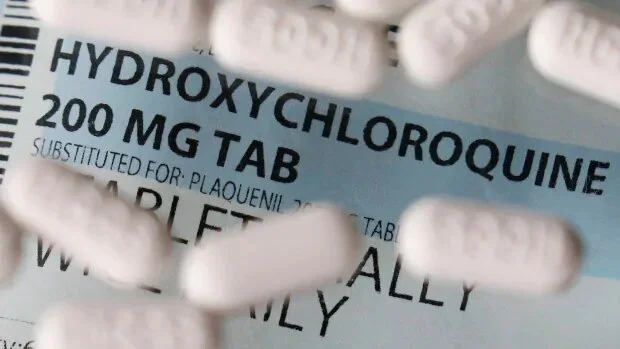The drug hydroxychloroquine, which has been the subject of heated debate as a potential treatment for COVID-19, was not effective in preventing the disease in Canadians and Americans at high risk, according to the first gold standard clinical trial.
In Wednesday’s issue of the New England Journal of Medicine, medical researchers reported on testing the use of hydroxychloroquine in 821 adults throughout the U.S. and in Quebec, Manitoba and Alberta. The participants did not have symptoms but were exposed to someone with confirmed COVI9-19 in a health-care or household setting.
Hydroxychloroquine is often used to treat autoimmune diseases such as lupus. U.S. President Donald Trump said he’s taken hydroxychloroquine, although he’s not tested positive for the coronavirus infection. No studies have proven this drug or any others are effective against COVID-19.
The exposures were all considered high risk, because the participants were less than two meters away from a confirmed case for more than 10 minutes without wearing a mask or face shield. The goal of the randomized trial was to see if hydroxychloroquine could prevent symptoms of infection, known as postexposure prophylaxis, compared with taking a sugar pill.
“In this trial, high doses of hydroxychloroquine did not prevent illness compatible with COVID-19 when initiated within four days after a high-risk or moderate-risk exposure,” the study’s authors wrote.
Gold standard method
Dr. Emily McDonald, a physician at the Research Institute of the McGill University Health Centre, co-authored the randomized control trial in which half of participants were randomly assigned to the drug and half to the placebo without investigators knowing to avoid bias in interpreting any symptoms or their resolution.
McDonald called it the gold standard method to have the best evidence to support how to prevent spread of COVID-19.
“When we politicize the drug and we stop studies early for reasons that are perhaps not entirely valid, we risk never answering the question properly because the enrolment for the studies drops off,” McDonald said.
“There are also hundreds of patients that have contributed their data to randomized trials because they also felt a responsibility to help the scientific community answer this question.”
Overall, 107 of 821 of participants developed COVID-19 based on a swab or compatible symptoms during 14 days of followup.
No deaths occurred
Of those who received hydroxychloroquine, investigators said 49 developed the disease compared with 58 in the placebo group, a difference that could simply be random.
Two patients were hospitalized, one in each group. No deaths occurred.
Medication side-effects such as nausea and abdominal discomfort were more common for patients taking hydroxychloroquine compared to placebo (40 per cent versus 17 per cent), but no serious treatment-related adverse reactions were reported, including any heart arrhythmia.
Earlier on Wednesday, the World Health Organization announced it was resuming the hydroxychloroquine arm of its Solidarity trial into potential treatments for COVID-19 following a pause to check for any potential safety concerns such as heart problems.
The Solidarity trial includes participants and researchers in Canada.
Previous studies of hydroxychloroquine were observational in design, which greatly increases the potential for bias when managing patients compared with a well conducted, randomized clinical trial.
Source link


Be First to Comment